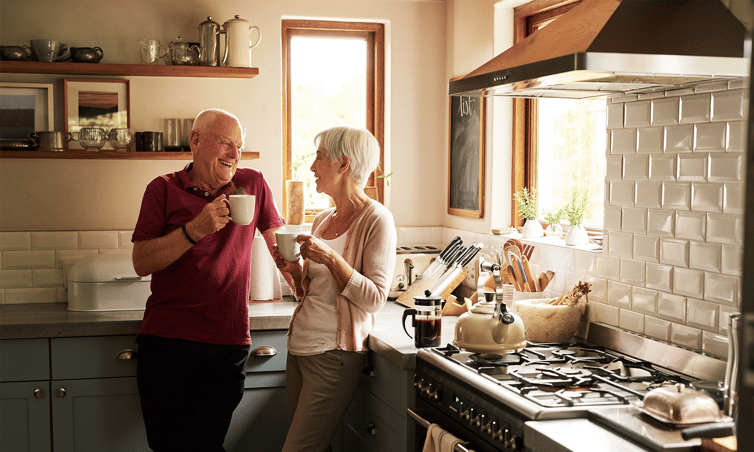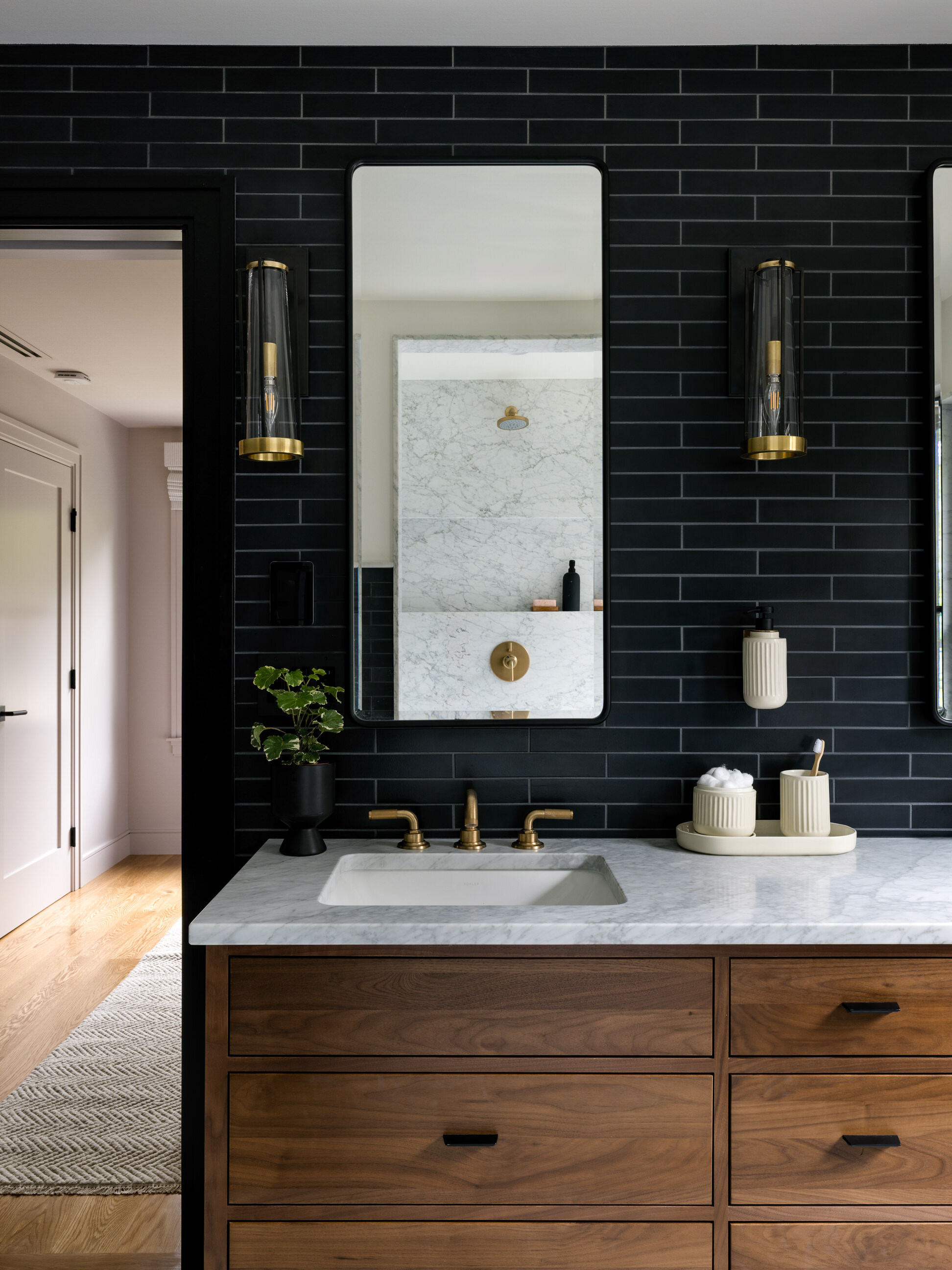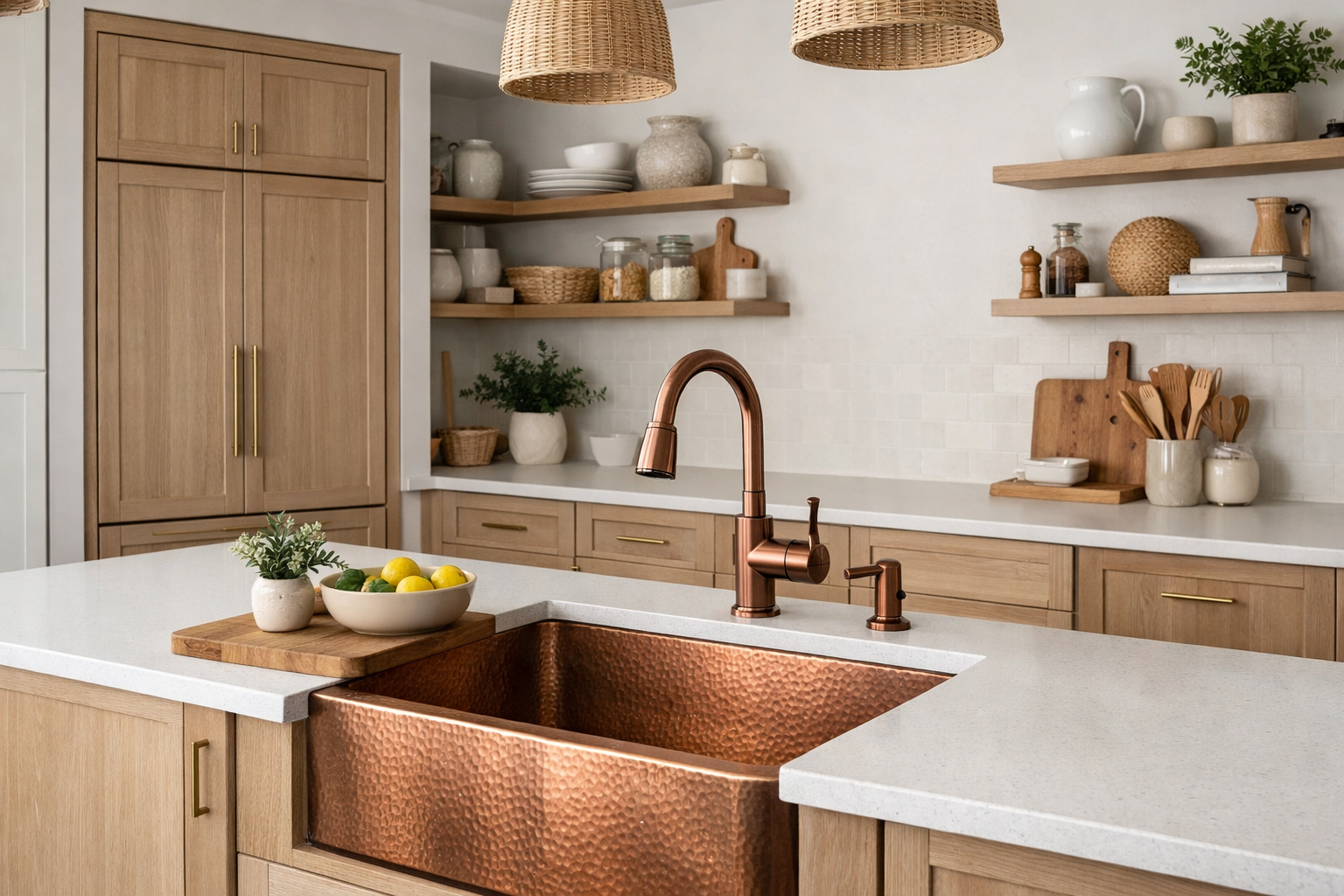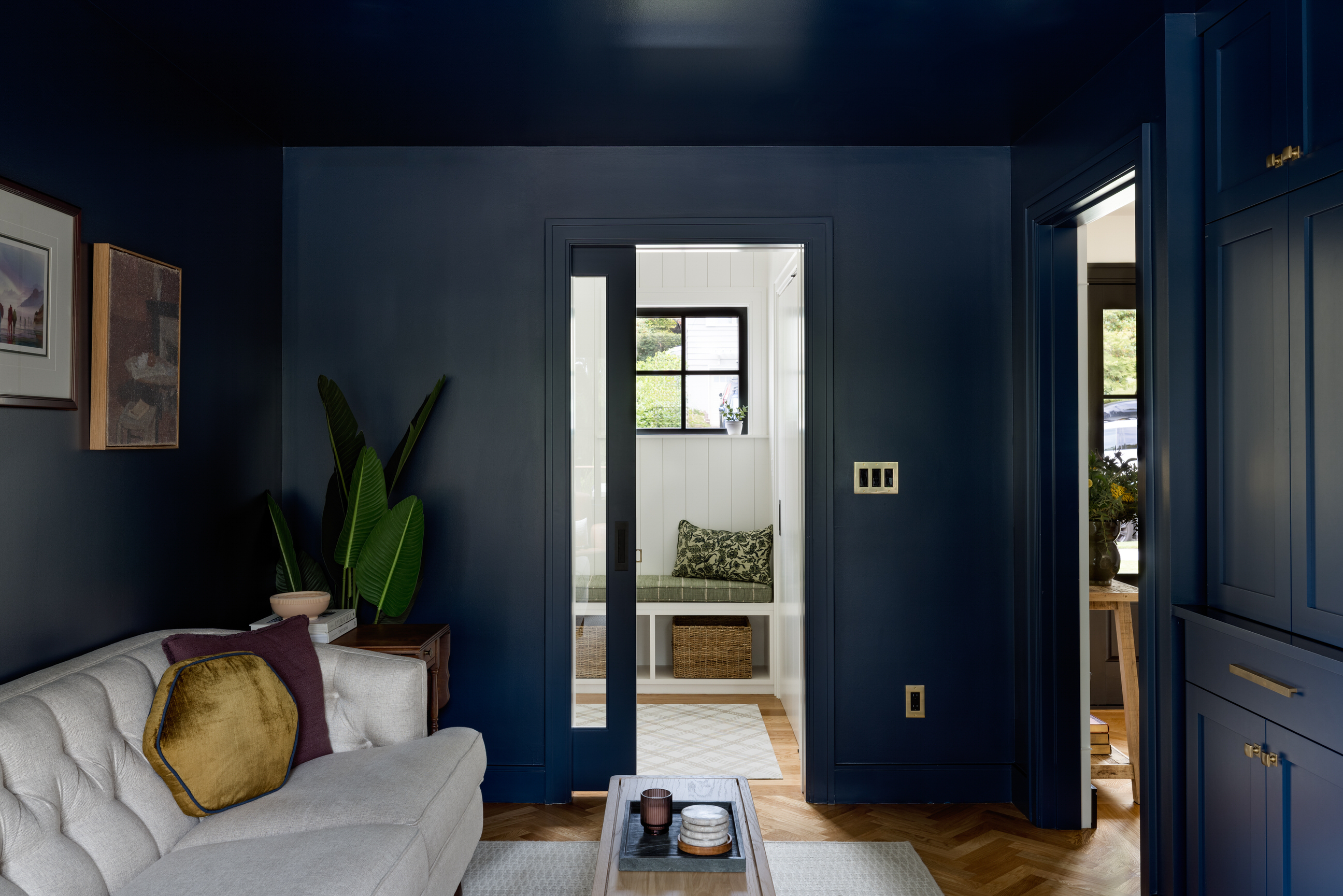Should I Move or Remodel to Age in Place? Choosing "Home" as an Older Adult
As you pass the age of 50, your years are filled with accomplishments: retiring, raising your children to be independent adults, etc. This period of life is meant to be enjoyed; after working hard for many years, you can focus on your passions, hobbies, and next set of goals.
However, oftentimes the home you’ve lived in for 15, 20, or 30 years isn’t suited to your current needs. After all, thinking and talking about “aging in place” has only gained popularity in the public over the past few years.
It’s important to make your comfort and goals the priority in this life stage, and making changes to your living situation is one of the most impactful ways to do so. It can be difficult to decide when your current dwelling is no longer conducive to your life, but informing yourself of the opportunities available to you will help you to make the best decisions for your future.
When it's time to change your living situation as an older adult
You don’t have to wait for something to be “wrong” to plan for the future. However, it can be hard to predict when your current living situation will no longer be right for you. Here are some signs that it’s time to make a change:
Everyday tasks are becoming harder to do.
Bathrooms with low toilets and high tubs, tight kitchens with tall cabinets, and lots of stairs can make completing daily activities exhausting or nearly impossible, depending on your health.
You are at serious risk of accident or injury.
Slippery floors, few railings, and other hazards can make your home dangerous; even more so when you’re alone.
You’re feeling isolated.
Your friends and family may have moved away over time, leaving you with few close companions in your area. It can be difficult in old age to forge new relationships and stay involved in your community when you have health challenges, but companionship is critical to your well-being.
You’re ready for a new chapter.
If you find yourself ready to make changes in your life that embrace your evolving needs and design a life that will enable you to thrive for years to come – your living situation is a great place to start (or continue) that journey.
Pro Tip
Consider current struggles as well as your goals for the future. Is your living situation getting you closer to achieving those goals?
Talk to loved one about the situation; an outside perspective can bring clarity.
See also: Revamping your Kitchen for a Comfortable Future: Aging in Place Kitchen Guide
How to choose your next home as an empty nester

This is a brand-new stage of life, so it will require time, research, and much consideration to find the right path for you.
Figure out the options available to you
These days, there are so many ways to modify your home to suit your needs (and have care come to you), as well as many kinds of communities. Look into the remodeling opportunities that would make sense for your needs, as well as what’s available in the area you’d like to live.
Weigh the pros and cons of each living situation
There will be benefits and drawbacks to each kind of living situation; it’s important to consider cost, the impact on your well-being, and how sustainable the situation is a few years down the road and beyond.
Decide which path is right for you and start taking steps
The earlier you start preparing for your future, the better the outcome will be. If it’s your dream to stay in your home, start planning how you can remodel your home to make that a reality.
What living options are available for seniors?
- Aging in place. This means you’ll continue to live in your current home, which may hold the bulk of your adult memories and family milestones. Oftentimes, aging in place requires modifying certain aspects of your home to make it more compatible to your new reality.
- Moving to a different independent home, condo, or apartment. For a variety of reasons (typically downsizing or changing locations), you may want to move homes, but continue living on your own.
- Moving in with family. If you don’t want to live on your own and there is room in a family member’s home, this may be a viable option for you.
- Moving to a retirement community. If you don’t need much medical assistance but you’d like to be surrounded by people who are in a similar life stage as you, a retirement community fits those parameters.
- Moving to an assisted living facility. When you need consistent medical support, an assisted living facility provides that.
Pro Tip
Remodeling can save you a major amount of money and undue stress, and renovations can be done over time. Starting with small modifications will help you little by little, until you are ready for more significant transformations to your home.
See also: Kitchen and Bath Design: Blending Functionality with Aesthetics During Your Remodel
Aging in place: is it right for me?

If you’re wondering whether you should stay in your current home, ask yourself these five questions:
Do you want continuity?
Remaining in your current home allows you to keep your daily patterns and routines, proximity to friends and family, and the comfort of all the memories you’ve made there. Living out your advanced years in the same place allows for a natural conclusion to everything that took place there.
Do you want to remain in your community?
If you have strong bonds and involvement in your community, it can be hard to give up; especially if you have many years in the community under your belt – they can be irreplaceable in terms of depth and length of time.
Do you want to avoid the cost and stress of moving?
Even if your home has gained value over the years and you’re looking to downsize, moving is still an enormous expense and a huge stressor. It may be advantageous for your health and finances to stay in your home.
Do you want to keep your possessions?
Often when we move, we are forced to let go of many of the things we’ve accumulated over the years and cherish. When you move to a smaller dwelling, you’ll be forced to pare down the number of items you take with you.
Are you willing to remodel?
You can renovate your home, so it fits your current needs, breathing new life into a space you treasure. There are plenty of changes you can make across your home – from your kitchen and bathroom to your bedroom – that will make your life easier, safer, and more comfortable. Whether you need to reimagine your home’s floorplan or make simple modifications to your everyday living spaces, remodeling your home can be the key to successfully aging in place.
See also: Understanding the Pros and Cons of the Different Remodeling Approaches
The pros and cons of relocating in as an older adult

If you are thinking about relocating, consider this list of plusses and minuses.
The benefits of moving
- Better location. Your new reality might mean that there’s another area you’d like to live in. Maybe it’s to be closer to family, or maybe it’s for more mild weather – whether it’s a few towns or halfway across the country, a new location could be just what you need.
- Care is more accessible. Depending on your condition, moving to a situation with better access to care could help you live a healthier life.
- Easier space to maintain. If you move into a dwelling that’s much simpler than your current home, you’ll save a lot of energy cleaning and taking care of it.
- New community. If you’re looking to get involved with a new group of people, moving is a great way to expose yourself to them.
The downsides to relocation
- It’s a major financial commitment. Whether you’re downsizing, moving to a community or a loved one's home, or buying a new place – there will be major expenses associated with moving. Realtors’ fees, paying movers, renting a storage unit, HOA fees . . . it all adds up rather quickly.
- The moving process is tolling. Moving your entire life from one location to another requires a ton of work. Even if you have plenty of help, it will still impact your stress levels and consume your life. It takes a good deal of energy to plan and execute and will throw you out of your routine for weeks. For someone with fragile health, this can be a real threat to their well-being.
- You’ll be leaving your established life behind. There’s nothing quite like the comforts of familiarity – knowing the roads like the back of your hand, having your go-to coffee and lunch spots, and being surrounded by people who have also been part of the community for years. These longstanding connections and routines are hard to replicate when you move.
- It may be hard to adjust. When we’re young, our bodies and minds are more adaptable to change. It gets harder as we age, because we don’t have the same energy to throw into a new situation or metal elasticity to bounce back from major culture shocks. Entering a new community might be harder than it was 25 years ago.
If you’re considering moving to a new independent home . . .
If you’re struggling in your current home, starting fresh may seem like the most obvious choice. However, this can be one of the most expensive options. A new house (unless it is custom-built for you) will probably require modifications to make the house more senior-friendly for you. An independent home means that you likely won’t improve your access to daily care/medical assistance by very much.
If you’re thinking about moving in with family . . .
Living with family can offer a level of companionship and connection that other options cannot. However, this will require major adjustments to the way you’re used to living, as well as to the family members that you will live with. Caregiving is a huge undertaking and puts family members under a lot of additional stress. It is highly likely the home will require modifications to be safe for you.
If you’re looking at moving to a retirement community . . .
Retirement communities often feel like resorts, and their dwellings are typically ultra-low maintenance. Living in this type of community will often make many aspects of life a lot easier: from meeting likeminded peers to transportation for groceries. However, the low amount of personal care provided to residents may not be enough for you to justify the move. Residents can end up feeling restricted by the rules of the community, feel undue pressure to be involved socially, and encounter cliques and less diverse social groups. The amenities of retirement communities come at a significant cost, of course, as well.
If you’re contemplating an assisted living facility . . .
If your condition requires a significant amount of involvement from caregivers, assisted living may feel like the only option. You’ll have consistent access to medical attention and a group of peers to socialize with. However, the lack of independence and autonomy can negatively impact on your mental health and attitude towards life. There are now many other ways to receive a similar level of care without needing to move to a facility that are worth considering.
See also: Reimagine Your Bathroom Without Starting from the Ground Up
Choose your path and take action
There are no easy answers when it comes to deciding whether to move or stay in your home to age in place. It is imperative to choose the option that is financially sound but will also preserve your physical and emotional well-being. Creating a plan early and taking small steps will allow your finances and health to have better outcomes.
Want to stay in your Seattle home for years to come?
Innovative Home Renovations will help you remodel your Seattle home for a safe, comfortable future. Our design and build team combine form and functionality to create custom kitchens, bathrooms, and other spaces that enhance all stages of life. Contact us today to get started on your dream home.





by Haley Carroll